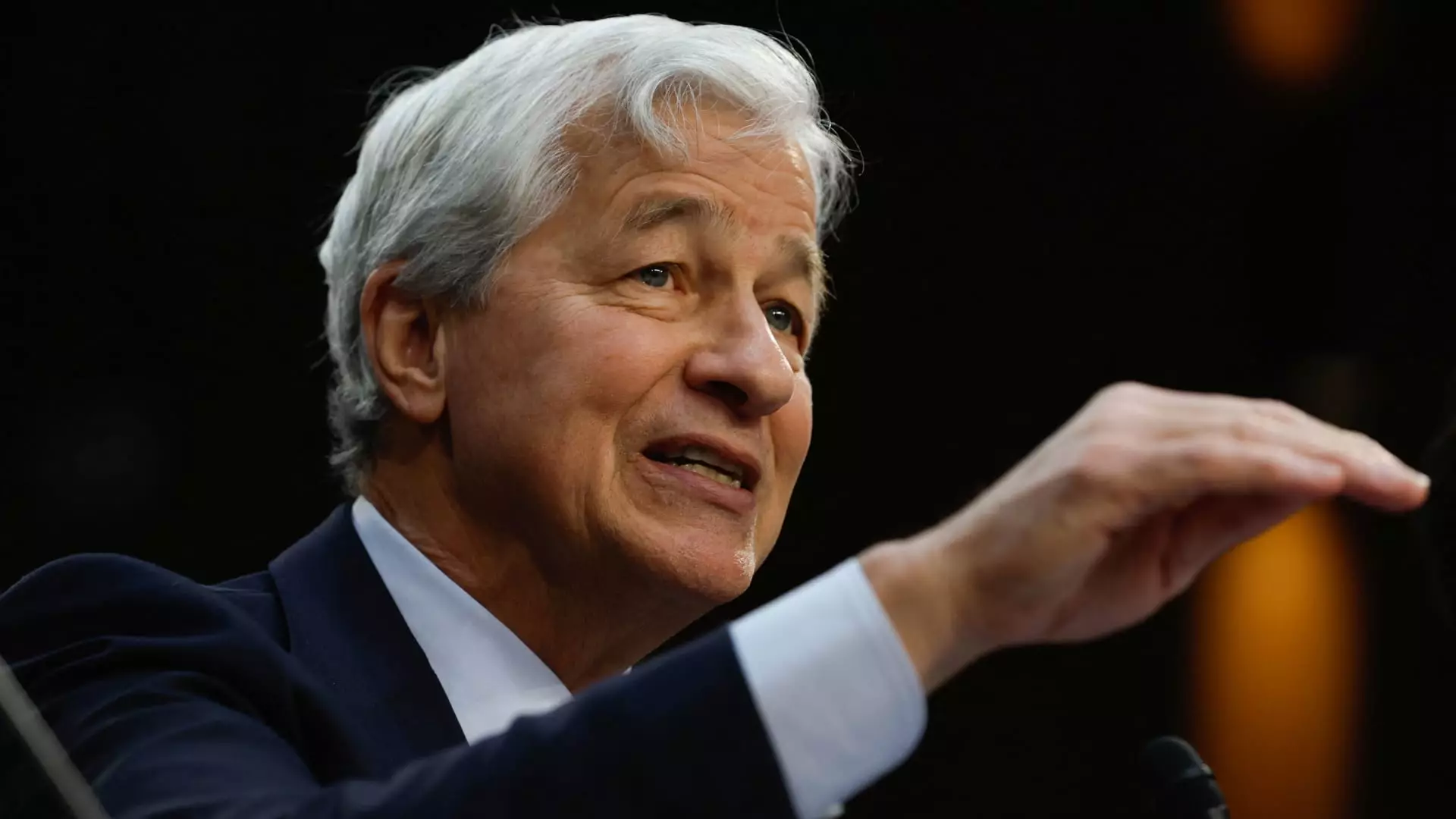In the corporate world, the chaos fomented by President Donald Trump’s trade negotiations has reached a tipping point, leaving industry leaders grappling with an uncertain financial future. Jamie Dimon, CEO of JPMorgan Chase, has boldly foreseen a significant downward adjustment in corporate earnings estimates, reflecting the growing financial anxiety spreading across various sectors. As businesses try to navigate these turbulent waters, an unsettlingly familiar refrain emerges: the imperative of caution.
Dimon’s comments came during a recent call with reporters to discuss JPMorgan’s first-quarter earnings, where he acknowledged a disappointing shift in the market climate, characterized by a more pessimistic outlook from analysts. With corporate giants throughout the S&P 500 bracing for a reduction in earnings, Dimon warned that estimates, which had hovered around a 5% growth, could soon turn negative — marking a stark departure from the optimistic projections that once fueled investment enthusiasm.
Investor Hesitancy: A Ripple Effect
It’s not merely a shift in tone; this ongoing tumult has created a palpable anxiety among investors. Dimon’s reflections suggest that companies are proactively rescinding guidance as they confront volatility head-on, striving to insulate themselves from unforeseen downturns. This investor hesitancy has led to a sharp reevaluation of long-term strategies, with businesses prioritizing short-term gains over expansive growth plans. The cautious approach echoes through the fabric of the corporate landscape like a wavering heartbeat.
Companies traditionally unacquainted with such trepidation, like Walmart and Delta, are reining in their forecasts, signaling a widespread recognition of the uncharted territories that lie ahead. As we witness an observable shrinkage in both big and middle-market companies’ willingness to engage in acquisitions or investments, it’s clear: an atmosphere fraught with uncertainty is curtailing the vigor that normally drives business.
Tariffs and Consumer Behavior: A Complex Interplay
The ramifications of trade tariffs extend beyond boardrooms; they penetrate consumer behaviors as well. In the current climate, consumers adjust their purchasing strategies, seemingly driven by a functional urgency to acquire goods before impending price hikes manifest themselves. This peculiar urgency could create a temporary buffer for the economy, as individuals rush to fill their carts before tariffs escalate costs, ultimately generating brief spikes in demand despite broader economic malaise.
However, this consumer sprint may prove to be a double-edged sword, disguising the deeper repercussions of persistent uncertainty. If companies adjust their strategies in response to heightened consumer spending, it may only sustain a façade of stability in the short term. Dimon’s insights remind us that while consumer confidence appears robust now, the underlying fragility induced by turbulent trade relationships could spark an even harsher reckoning down the line.
A Call for Political Responsiveness
As we witness the unpredictable dance of corporate earnings forecasts and consumer purchasing behavior, it becomes clear that political leaders must engage in more strategic dialogue to restore confidence in the market. The current landscape demands a collaborative, rather than combative, approach to trade relationships that prioritize stability over volatility. Companies and consumers alike deserve a more predictable economic environment — one where planning for the long-term is not merely a hopeful ambition but a viable reality.

